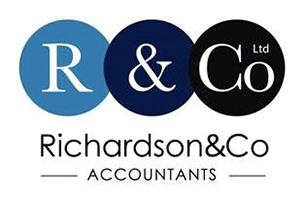Are you due an NI refund?
There are good reasons for keeping a close eye on your NI contributions. For example, they are key to your entitlement to the state pension and other benefits. How can you identify and check if you’ve over or underpaid contributions?

DIY NI review
Whilst HMRC keeps a record of your NI contributions, it won’t automatically alert you to any shortfall unless it results from an obvious mistake in calculation. It’s also not very good at spotting and alerting individuals who have overpaid NI.
The likelihood of over or underpaying NI contributions is greater if any of the following are true:
- you’re employed and self-employed
- you have two or more employments or directorships
- your work pattern and pay are irregular
- you have gaps in your employment/self-employment record
- you cease or commence a directorship part-way through a tax year.
Example. In 2022/23 Andy had one employment earning £80,000 per year. He paid NI of just over £5,800. In the same year Barry had two jobs with unconnected businesses, both paying a salary of £40,000 per year. He paid NI in excess of £7,600 even though his earnings were identical to Andy’s.
Correct calculation isn’t enough
In the example each employer has calculated the correct amount of NI for the employee’s pay, but this doesn’t prevent an overpayment of contributions because, unlike PAYE income tax, NI is worked out independently for each employment rather than as a whole. When added together the NI contributions exceed the maximum permitted. This is one scenario where HMRC should pick up an overpayment of NI but frequently fails to.
Multiple self-employments
Unlike multiple employments, you won’t overpay NI contributions if you have more than one self-employment, e.g. you’re a sole trader as well as being a partner in a business. This doesn’t cause overpayments because your profits from all your self-employments are declared on your self-assessment tax return and your NI bill worked out on the aggregate of your profits.
NI underpayments
Generally, if you’re self-employed or employed throughout a tax year, with no gaps in employment/self-employment, you should pay the correct amount of NI contributions . However, this doesn’t guarantee that the contributions are sufficient to count as a qualifying year for state pension purposes. For any pay period your earnings are less than the NI lower earnings limit, you won’t have a full year on your NI record. Only full years for NI contribution purposes count towards your state pension.
You can check your NI record fairly easily at https://www.gov.uk/check-state-pension and pay voluntary contributions to plug any gaps in your NI record.
Related Topics
-
Tax relief for lending to your company
You can usually claim tax relief for money you borrow personally to lend to your company. It sounds straightforward but there are in fact a number of restrictions to trip you up. How do you secure the tax relief?
-
Who can't yet sign up for MTD IT?
Making Tax Digital for Income Tax (MTD IT) becomes mandatory from April 2026 for sole traders and landlords with qualifying income over £50,000. However, HMRC’s current guidance makes clear that not everyone can sign up yet. If you are preparing early, are you actually eligible?
-
Pay self-assessment tax





 This website uses both its own and third-party cookies to analyze our services and navigation on our website in order to improve its contents (analytical purposes: measure visits and sources of web traffic). The legal basis is the consent of the user, except in the case of basic cookies, which are essential to navigate this website.
This website uses both its own and third-party cookies to analyze our services and navigation on our website in order to improve its contents (analytical purposes: measure visits and sources of web traffic). The legal basis is the consent of the user, except in the case of basic cookies, which are essential to navigate this website.